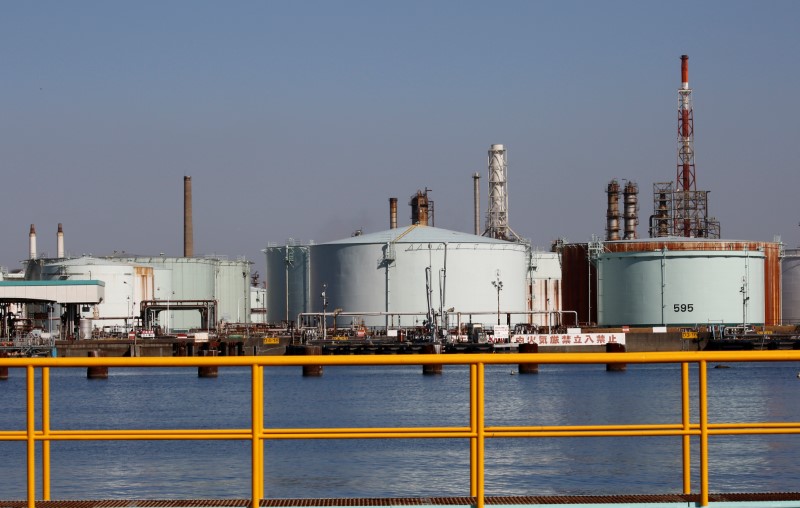Investing.com-- Oil prices edged higher in choppy trade Monday as raised Middle East tensions added to recent gains as the prospect of lower interest rates pushed up hopes that demand will improve.
At 08:50 ET (12:50 GMT), Brent oil futures rose 0.1% to $73.72 a barrel, while West Texas Intermediate crude futures climbed 0.1% to $71.07 a barrel.
Fed rate cut boosts oil, more economic cues awaited
Crude prices slipped slightly lower after a two-week rebound from near three-year lows, helped by the decision of the Federal Reserve to cut interest rates sharply.
The move pushed up hopes that lower rates will foster economic growth in the coming months, in turn helping spur increased crude demand.
Both oil benchmarks rose more than 4% last week.
More cues on the Fed are due this week, with a string of officials- most notably Chair Jerome Powell- set to speak in the coming days. The Fed’s preferred inflation gauge- PCE price index data- is also due on Friday.
Beyond the Fed, the Swiss National Bank and the Swedish central bank are set to meet this week, with both banks likely to cut interest rates.
Middle East tensions remain in play
Traders were seen attaching a risk premium to oil prices amid few signs of receding tensions in the Middle East.
Israel continued to carry out strikes in Gaza and Lebanon, keeping concerns of an all-out war in the region largely in play. Hezbollah had recently vowed retaliation against Israel after the country allegedly detonated several electronic devices used by the Lebanese group.
The constant fighting and threats of war pushed up concerns that a bigger conflict in the Middle East will disrupt supplies in the oil-rich region, tightening global markets.
Sentiment "decisively bearish"
However, analysts at Bank of America noted that "sentiment among energy investors has turned decisively bearish" due to plans by the Organization of the Petroleum Exporting Countries and its allies -- known as OPEC+ -- to phase out additional voluntary output cuts.
The oil group is set to gradually bring back 2.2 million barrels per day from December 2024 until November 2025, although this timeline was itself earlier delayed by two months.
"Speculative net positioning in total petroleum futures and options recently dropped to the lowest levels since at least 2011, suggesting investors are already more than positioned for a falling energy price environment," the Bank of America analysts said.
(Ambar Warrick contributed to this article.)
